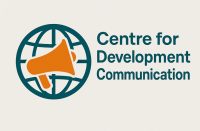As I listened to the frustrations of the community organisations, I told them: impact and technical strength are not enough — without compliance, you won’t win grants.
On the 30th of August 2025, I visited Orozo community, located after Kurudu in the AMAC area of FCT. The purpose of my visit was to hold a Focused Group Discussion with 11 rural farmers (five women and six men) for a study examining the role of participatory agricultural communication in enhancing farming productivity among rural farmers in Abuja.
We sat on wooden benches under a mango tree, farmers shared how communication processes that directly involve them in information sharing, decision-making, and feedback could improve agricultural outcomes.
During the discussion, two community organisations working to strengthen farmers’ capacity expressed deep frustration. One of their leaders sighed and said: “We have attended so many grant writing trainings, but each time we apply, rejection still comes. What else are we missing?”
After listening to them, I shared this perspective: many grant writing trainings emphasise the technical side of proposals — writing compelling problem statements, crafting innovative solutions, and outlining robust monitoring frameworks. While these are important, what trainers often fail to emphasise is that compliance frequently determines who wins grants.
For most donors, the first stage of evaluation is not about the brilliance of your idea — it is about compliance. This includes:
Submitting every required document exactly as requested
Meeting deadlines without excuse or extension
Following budget instructions to the letter
Proving eligibility with clear, verifiable evidence
Using donor templates without deviation
A technically excellent proposal that misses one compliance detail is often disqualified before the review panel even reads it. Meanwhile, a less innovative but fully compliant proposal moves forward.
👉 Compliance gets your proposal read.
👉 Technical strength makes it competitive.
👉 Delivery capacity convinces donors to invest.
Many lose opportunities not because they lack great ideas, but because they underestimate the discipline of compliance. It is the donor’s way of ensuring accountability, transparency, and trust.
The takeaway is clear: while you sharpen your technical proposals, also build a culture of compliance within your team. Train staff to carefully read calls for proposals, double-check submissions, and treat compliance not as a burden but as a gateway.
In the grant world, compliance is not just paperwork — it is the first proof that you can be trusted to deliver impact.
Audu Liberty Oseni
Director, Centre for Development Communication
hashtagOseniDevTalks
Note: I did not share participants’ pictures because I do not have their consent. Sharing their images without permission is an offence under the Nigeria Data Protection Act, 2023.
